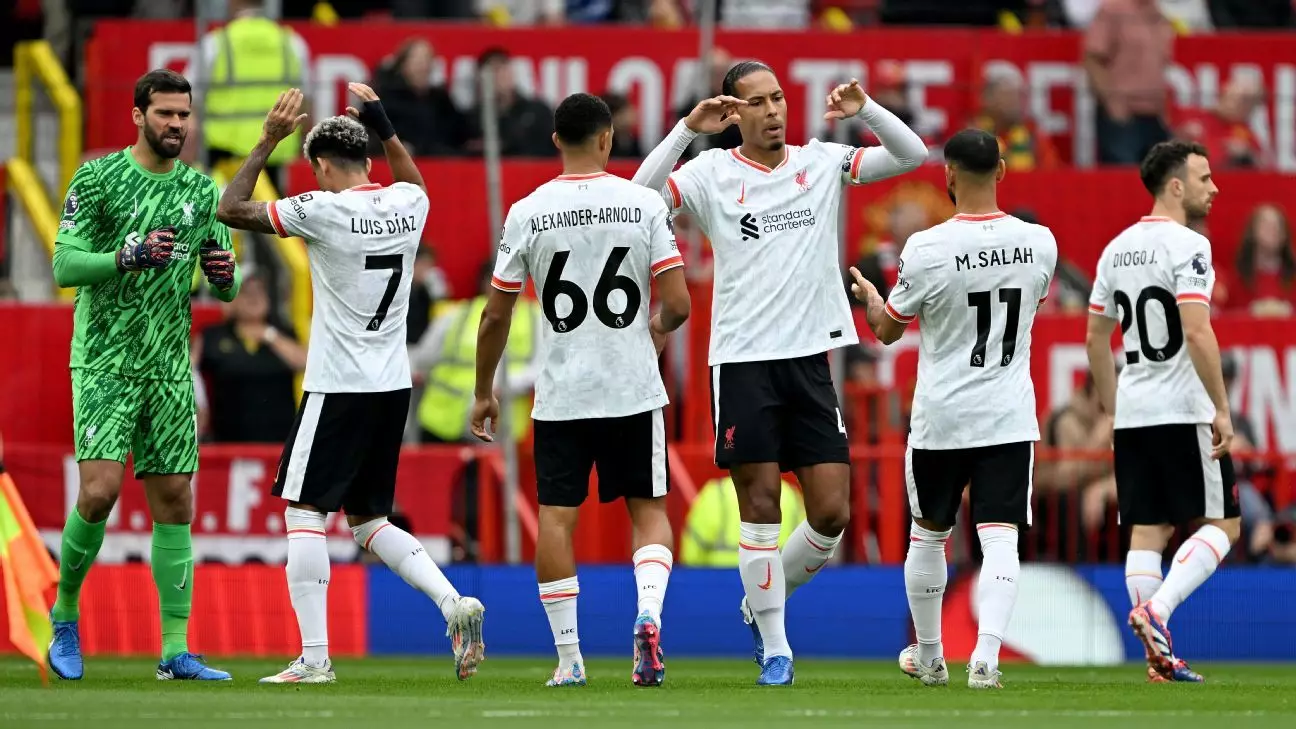The looming contract situations of Liverpool’s star players Mohamed Salah, Virgil van Dijk, and Trent Alexander-Arnold represent a complex web of challenges for the club. As time winds down toward the end of the current season, the Premier League giants must navigate a precarious balance between retaining their world-class talents and addressing the underlying uncertainties surrounding contract negotiations. The implications of potentially losing these pivotal players for free could be grave for both the team’s structure and its aspirations for future success.
Liverpool finds itself under immense pressure as key contracts are set to expire, with Salah, Van Dijk, and Alexander-Arnold all entering crucial moments in their football careers. The situation is not merely a business concern; it can impact morale, public perception, and ultimately the club’s competitive edge. In less than 100 days, any of these instrumental figures could negotiate with foreign clubs, exposing Liverpool to the peril of a complete midfield and defensive overhaul.
The trio pf players holds different values; their trajectories diverge dramatically. Salah, at 32, and Van Dijk, at 33, are seasoned players whose contributions have been invaluable but whose long-term viability is questionable. Alexander-Arnold, the youngest at 25, is on the cusp of his prime, making him an essential asset for the future. The fabric of Liverpool’s team dynamics hangs in the balance, whereby the resolution of one player’s contract could trigger implications for the others.
Evaluating the Risks: A Strategic Gamble
Fenway Sports Group (FSG), Liverpool’s ownership, is in a precarious position. Historically, the club has opted for caution over risk, evidenced by their strategic decisions concerning former players such as Sadio Mané and Roberto Firmino. Prior to their exits, the club took a wait-and-see approach, concluding it was better to part ways before a decline in performance set in. However, the stakes presented by Salah and Van Dijk are vastly different, given their established legacies at the club and current form.
Left in the void of silence from the club’s hierarchy, players like Salah and Van Dijk have publicly expressed their frustrations. Salah, who has exemplified skill and tenure at Liverpool, articulated the alarmingly simple reality that no discussions regarding a new deal have occurred. This delay has led to increasing disenchantment among the fanbase, as the uncertainty raises doubts about the club’s commitment to its most prolific players.
Contrastingly, Trent Alexander-Arnold’s situation casts an even bigger shadow on Liverpool’s decision-making process. Engaging in contract discussions with him means contending with the expectations set by Salah and Van Dijk’s potential renewals; the interconnection is intricate and presents a dilemma that demands a thoughtful approach from the management. The promising right-back has become an integral part of the club’s identity, but his reluctance to shut down speculation regarding potential moves raises eyebrows.
Long-term rumors linking Alexander-Arnold to Real Madrid amplify the urgency of making quick decisions. While the player has made it clear that his primary goal is winning trophies, his comments leave enough ambiguity for speculation to hold weight. Moreover, the club’s struggle to keep up with the mounting intrigue could lead to a higher chance of a player exodus, reminiscent of the past departures of club legends like Steve McManaman and Michael Owen.
As the clock ticks down on the contracts of these vital players, Liverpool faces an escalating distraction that threatens their on-field performance. If no resolutions are reached, the implications could resonate throughout the team, affecting player morale and focus amidst an already high-pressure environment. Nonetheless, the outcome may ultimately favor Salah, Van Dijk, and Alexander-Arnold, providing them with newfound leverage either to negotiate favorable deals or explore new adventures as free agents.
Liverpool’s challenges do not merely stem from contractual obligations; they echo deeper concerns regarding future strategy and identity. With transformative changes a reality on the horizon, the club must act decisively and intelligently to ensure that they are not stranded in a cycle of rebuilding. The trajectory taken in the upcoming months is crucial; failing to adapt not only jeopardizes the team’s current ambitions but also signifies a potential decline from their recent glory years.
As Liverpool navigates this treacherous landscape of contract negotiations, it becomes imperative for ownership and management to recognize the urgent need for strategic foresight. The decisions made in the forthcoming weeks may well shape the future of the club for years to come, possibly defining its legacy in the footballing world. The ideal scenario remains one where the club’s elite players extend their tenures, but time is certainly of the essence.


Napsat komentář